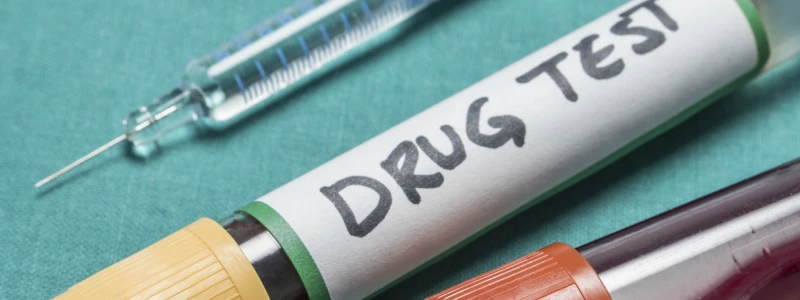
Last Updated: December 14, 2023
Within the United States Department of Transportation (DOT) is the Federal Transit Administration (FTA), which regulates “mass transit” systems. It provides financial and technical assistance to local public transit systems, including buses, subways, light rail, commuter rail, trolleys, and ferries. The FTA also oversees safety measures and helps develop next-generation technology research.
One of the areas of regulation and oversight is drug and alcohol testing. Mass transit agencies must follow DOT regulation 49 CFR Part 40 and FTA regulation 49 CFR Part 655 and conduct an FTA drug test.
The DOT FTA drug test program for FTA regulated employers must include the following components:
The drug testing under FTA rules includes pre-employment, random, post-accident, reasonable suspicion, return-to-duty, and follow-up.
If you're looking for help managing your drug-free workplace program, call 866-566-0261 or order your test online.

Pre-employment testing is extremely important. Section 655.41(a)(1) states: "Before allowing a covered employee or applicant to perform a safety-sensitive function for the first time, the employer must ensure that the employee takes a pre-employment drug test administered under this part with a verified negative result. An employer may not allow a covered employee, including an applicant, to perform a safety-sensitive function unless the employee takes a drug test administered under this part with a verified negative result."
If the policy specifies that an applicant may not be hired until after a verified negative drug test result, that is an acceptable alternative to the first performance of a safety-sensitive duty. Section 655.41(c) states: "If a pre-employment drug test is canceled, the employer shall require the covered employee or applicant to take another pre-employment drug test administered under this part with a verified negative result."
Section 655.41(b) states: "An employer may not transfer an employee from a non-safety-sensitive function to a safety-sensitive function until the employee takes a pre-employment drug test administered under this part with a verified negative result."

The FTA drug and alcohol testing program requires random testing for drugs and alcohol. This should be reasonable spread out over the course of the year and overall work shifts. Testing should be a surprise, unannounced. Annually, the FTA will set the required percentages for drug and alcohol testing. The FTA’s website can be viewed for the current percentages required. It's important to remember that regardless of job titles like supervisor, volunteer, contractor, owner-operators, etc., people are chosen for testing based on their job function (known as a safety-sensitive function), not their occupational title. Here are some best practices for your random testing program:
Any employee who is allowed to return to safety-sensitive duty after failing or refusing to submit to a DOT drug and/or alcohol test must first be evaluated by a substance abuse professional (SAP), complete a SAP-required program of education and/or treatment, and provide a negative return-to-duty drug and/or alcohol test result. All tests will be conducted in accordance with DOT regulations 49 CFR Part 40, and these drug test specimens are directly observed.
Employees returning to safety-sensitive duty following leave for substance abuse rehabilitation will be required to undergo unannounced follow-up alcohol and/or drug testing for a period of one (1) to five (5) years, as directed by the SAP. The duration of testing will be extended to account for any subsequent leaves of absence, as necessary. The type (drug and/or alcohol), number, and frequency of such follow-up testing shall be directed by the SAP. All testing will be conducted in accordance with DOT regulations 49 CFR Part 40, and these drug test specimens are directly observed.
One trained supervisor or company official can make the decision based upon specific, contemporaneous, articulable observations concerning the appearance, behavior, speech, or body odors of the employee. Supervisor training is required, and US Drug Test Centers can provide this training.
With the FTA program, post-accident testing can be complicated. The FTA post-accident testing thresholds are as follows:
Section 655.4 (Accident) defines the FTA criteria for a covered accident after which drug and alcohol testing must be conducted as follows: "Accident means an occurrence associated with the operation of a vehicle, if as a result: (1) An individual dies; or (2) An individual suffers bodily injury and immediately receives medical treatment away from the scene of the accident; or (3) With respect to an occurrence in which the mass transit vehicle involved is a bus, electric bus, van, or automobile, one or more vehicles (including non-FTA funded vehicles) incurs disabling damage as the result of the occurrence and such vehicle or vehicles are transported away from the scene by a tow truck or other vehicle; or (4) With respect to an occurrence in which the mass transit vehicle involved is a rail car, trolley car, trolley bus, or vessel, the mass transit vehicle is removed from operation."
If company-specific elements are also included, these must be identified as the employers own criteria for completing post-accident tests under the employers' own authority.
Only 5 panels of drugs must be tested for — the DOT 5 panel:
Phencyclidine (PCP) Amphetamines:
Opiates:
Alcohol testing is also required for random, post-accident, reasonable suspicion, return-to-duty, and follow-up. Alcohol testing is performed with an Evidential Breath Testing (EBT) device which is listed on the NHTSA conforming products list (CPL) for evidential devices. These are the only devices that can be used to conduct alcohol confirmation tests under DOT rules 49 CFR Part 40.
FTA regulation 655.45 applies to employees who perform safety-sensitive functions. A safety-sensitive function is defined in CFR Part 655.4, as any of the following duties, when performed by employees of recipients, sub-recipients, operators, or contractors:
The FTA defines safety-sensitive based on the function performed instead of listing specific job categories.
US Drug Test Centers is a consortium and third-party administrator (C/TPA) administering drug and alcohol testing programs for DOT-regulated and FTA-regulated employers. The C/TPA will manage the entire drug testing process including written policy and drug testing with collection, laboratory, and a Medical Review Officer (MRO).
US Drug Test Centers works with SAMHSA-certified labs and MROs to provide accurate results. Call 866-566-0261 or order your test online today!
It’s important that the policy for an FTA agency be reviewed and approved by the local governing board of the employer or operator, or another responsible individual with appropriate delegation of authority. Section 655.12, Required Elements of an anti-drug use and alcohol misuse program, states: "(a) A statement describing the employer’s policy on prohibited drug use and alcohol misuse in the workplace, including the consequences associated with prohibited drug use and alcohol misuse. This policy statement shall include all of the elements specified in section 655.15 of this subpart. Each employer shall disseminate the policy consistent with the provisions of section 655.16 of this subpart."
Section 655.16 states: "Each employer shall provide written notice to every covered employee and to representatives of employee organizations of the employer’s anti-drug and alcohol misuse policies and procedures."

Employee Training
Employers must provide education with display and distribution of informational materials and a community service hot-line telephone number, if available. They must also provide one hour of training on the effects and consequences of prohibited drug use on personal health, safety, and the work environment, and on the signs and symptoms that may indicate prohibited drug use. Distribution to each employee of the employer’s policy regarding the use of drugs and alcohol with signed receipt is mandatory.

Supervisor Training
One hour of training is required on the specific, contemporaneous physical, behavioral, and performance indicators of probable drug use. One hour of training is also required on the specific, contemporaneous physical, behavioral, and performance indicators of probable alcohol use.
There are many components to a compliant and effective DOT drug and alcohol testing program for FTA regulated employers. Audits do occur and are very strict. US Drug Test Centers can help with the required written policy, drug testing, random testing, and overall program management.
The Federal Transit Administration or FTA is regulated by the Department of Transportation or the DOT in accordance 49 CFR Part 655. Under these regulations, FTA covered employers and employees are required to adhere to all DOT drug and alcohol testing including for pre-employment, random, post-accident and more. This testing must be a DOT 5 panel urine drug test and testing must be performed by a SAMHSA certified laboratory. For more information, contact US Drug Test Centers today!
The Federal Transit Administration or FTA strictly adheres to all required Department of Transportation or DOT drug and alcohol regulations in compliance with 49 CFR Part 655. One primary regulation includes being enrolled in a random consortium. All FTA covered employers and employees performing safety sensitive functions are required to be enrolled in a random drug testing pool (also called a consortium), eligible for random selections throughout 4 quarters of the year. This random drug testing pool must meet a requirement of 50% drug testing and 10% alcohol testing annual. For more information, contact US Drug Test Centers today!
Workers that are performing safety sensitive functions consistent with conditions outlined in FTA regulation 49 CFR Part 655 are required to be tested under the Department of Transportation for FTA while performing any of the following duties: operating a revenue service vehicle, even if not in revenue service, operation a non-revenue service vehicle, when required to be operated by a driver holding a Commercial Driver's License or CDL, managing dispatch or movement of a revenue service vehicle, sustaining a revenue service vehicle or equipment used in revenue service such as repairing or rebuilding the vehicle or equipment, or carrying a firearm for security purposes. For more information, contact US Drug Test Centers today!
The Federal Transit Administration or FTA follows all DOT drug and alcohol testing requirements including testing for pre-employment, random, post-accident, reasonable suspicion, return-to-duty and follow up. Included in these regulations is the requirement for breath alcohol testing. Breath alcohol testing under FTA regulations is required for random, post-accident and reasonable suspicion, return-to-duty, and follow up testing (if applicable or selected). This alcohol testing is conducted using an Evidential Breath Testing (EBT) device. An approved EBT device is the only device authorized to be used for alcohol confirmation testing as well. For more information, contact US Drug Test Centers today!